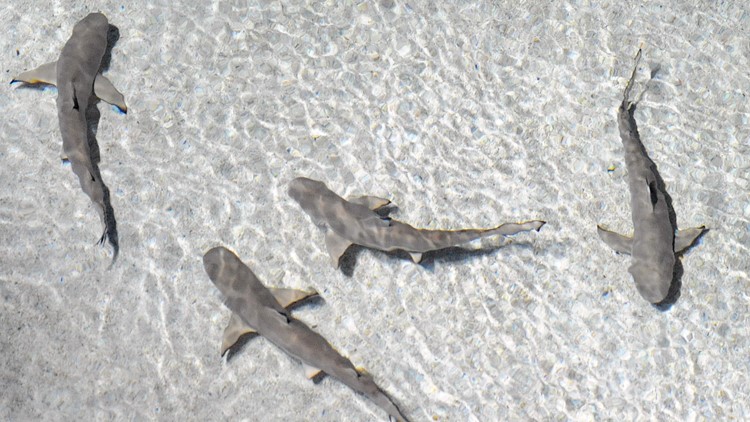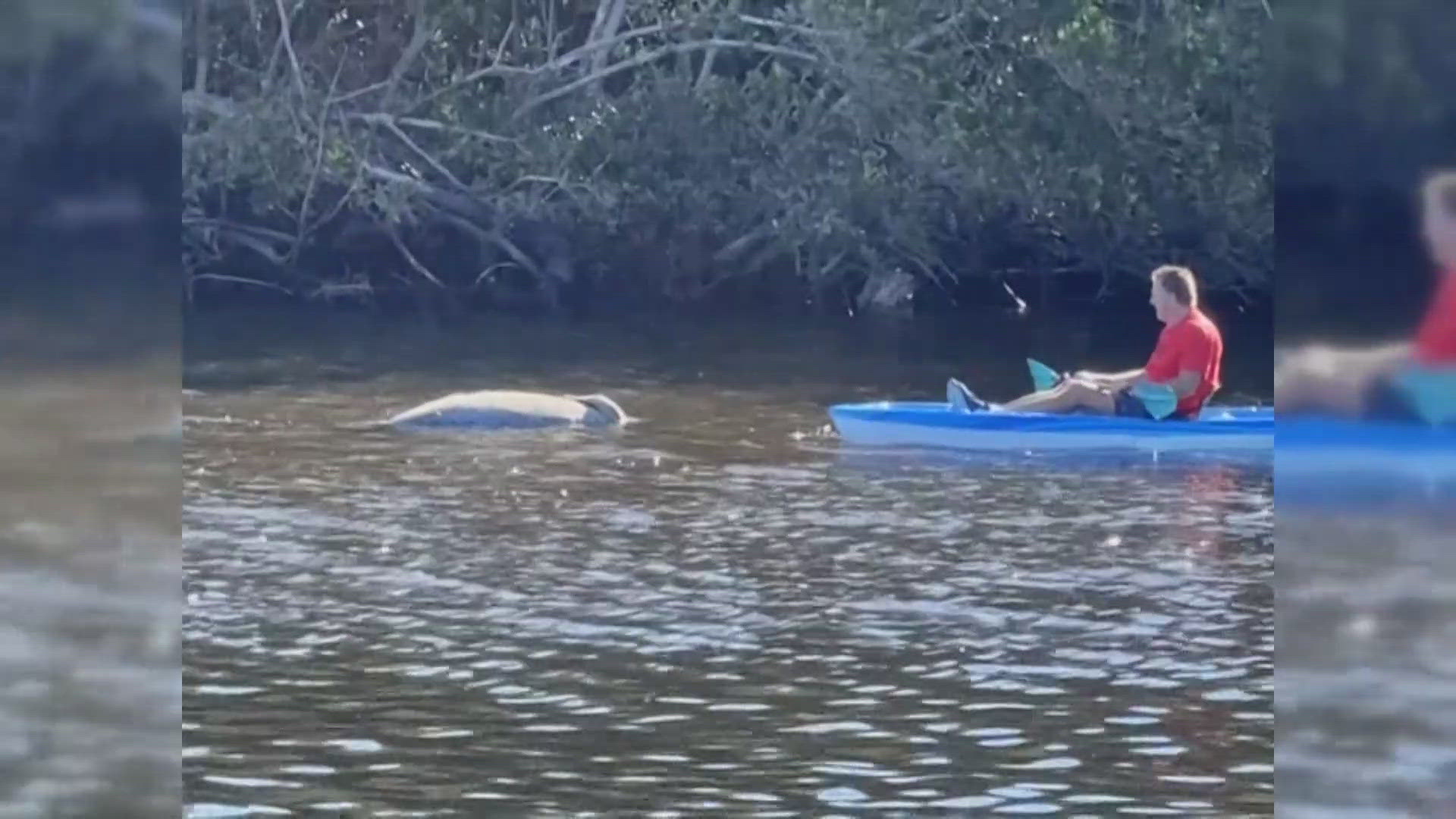As shark populations continue to decline, researchers around the world have launched conservation efforts to protect the different species.
But one group of scientists took a unique approach: artificial insemination.
A new study published in Scientific Reports revealed that scientists brought 97 baby sharks to life through artificial insemination in what they call the "largest-ever effort to artificially inseminate sharks."
The project involved a collaboration between scientists from several different organizations including The Florida Aquarium, which is located right here in Tampa, and the South-East Zoo Alliance for Reproduction & Conservation(SEZARC), a nonprofit based in Yulee, Florida.
Scientists used semen from 19 male whitespotted bamboo sharks to inseminate 20 females. The lead author of the report, Jennifer Wyffels from SEZARC, told CNN that particular species of shark was the ideal candidate for this study because of its size and the fact that it lays eggs.
Wyffels explained that whitespotted bamboo sharks, or Chiloscyllium plagiosum, grow to about three feet long, which makes them easier to handle for reproductive procedures than other species of sharks that could grow six to eight feet long, CNN reported. She added that the eggs are easier for scientists to monitor than pregnant female sharks.
Each trial took about nine months to complete causing the entire study to span four years, Wyffels told CNN.
Researchers say findings from this project could be used to foster healthier shark populations in the future, as it could remove the need to transport sharks between institutions for mating – an often costly process that adds stress to the animals.
The research could also be used to develop artificial insemination techniques for other shark species, including sand tiger sharks.
It is estimated that there are fewer than 500 sand tiger sharks left off the coast of Australia due to hunting, bycatch and illegal fishing, according to SEZARC.
"Sand tiger sharks are a protected species that is critically endangered in some parts of its range. They are very charismatic, long lived and popular in aquariums, but they don't often reproduce," Wyffels told CNN. "Eventually and with more research, we hope this technique will be used to help other rare and endangered shark and ray species."
A study published by the scientific journal Nature found that the number of oceanic sharks and rays in the world has declined by 71 percent from 1970 to 2018. The study added that 16 out of 31 oceanic shark species are now critically endangered or endangered.
CNN reports that while artificial insemination could play a role in shark conservation in the future, researchers believe that we still need to address bigger global issues like creating marine protected areas, cutting down on global bycatch and tackling climate change.
What other people are reading right now:
- CDC: Fully vaccinated people can largely ditch masks indoors
- Local doctors, county leaders weigh in on how CDC mask guidelines will impact you
- Internal investigation determines Sarasota officer who pressed knee on man's neck, back did not use excessive force
- Your guide to jumping on the Tampa Bay Lightning bandwagon
- Donate to Cereal for Summer today!
►Breaking news and weather alerts: Get the free 10 Tampa Bay app
►Stay In the Know! Sign up now for the Brightside Blend Newsletter



